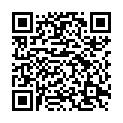|
|
|
| Module code: FTM-ENTW |
|
|
4SU+1U (5 hours per week) |
|
6 |
| Semester: 2 |
| Mandatory course: yes |
Language of instruction:
German |
Assessment:
Oral examination
[updated 02.12.2025]
|
FTM-ENTW (P242-0111, P242-0112, P242-0122) Automotive Engineering, Master, ASPO 01.04.2021
, semester 2, mandatory course
FTM-ENTW (P242-0111, P242-0112, P242-0122) Automotive Engineering, Master, ASPO 01.04.2023
, semester 2, mandatory course
|
75 class hours (= 56.25 clock hours) over a 15-week period.
The total student study time is 180 hours (equivalent to 6 ECTS credits).
There are therefore 123.75 hours available for class preparation and follow-up work and exam preparation.
|
Recommended prerequisites (modules):
None.
|
Recommended as prerequisite for:
|
Module coordinator:
Prof. Dr.-Ing. Thomas Heinze |
Lecturer:
Prof. Dr. Hans-Werner Groh
Prof. Dr. Jörg Hoffmann
Prof. Dr.-Ing. Rüdiger Tiemann
Lehrbeauftragte
M.Eng. Michael Fries
[updated 16.09.2022]
|
Learning outcomes:
H.-W. Groh: Wireless applications in and about the vehicle
After sucessfully completing this module, students will be able to evaluate the specifics of high-frequency signal generation in a transmitter, the propagation of such signal, and its processing in a receiver. In particular, they will be able to apply this transmission technology to the automotive field, recognize the special challenges associated with this environment and, based on this, derive solution approaches for implementation.
TH. Heinze / M. Fries:
Students will be familiar with the latest developments and trends in engine development based on current cases. They will be able to edit technical articles and understand important features of new innovative technical solutions and processes and associate them with the ongoing state of the art. Students will be able to keep up with the development departments in the automotive industry by being familiar with new technical terms, solution approaches and the tool chains used. By studying and discussing professional articles in the course, students learn to work with them.
R. Tiemann: Mechatronische Systeme zur geregelten Längs-/Quer- und Vertikaldynamik im Fahrwerk
Students will be able to explain, analyze and evaluate new vehicle systems for vehicle dynamics control, categorized into longitudinal/transverse dynamics and vertical dynamics. They will be able to evaluate the interaction of wheel-slip control with regard to driving characteristics. In this context, they will be able to analyze the effects and impact of new OEM systems and explain their advantages and disadvantages. More specifically, they will be able to illustrate the distinction between the control of e-differentials, ESP single wheel, all-wheel steering. Furthermore, they will be able to can evaluate new suspension/damping systems by comparing and describing the conflict between driving safety and comfort (sky-hook control). Finally, they will be able to explain and evaluate the individual systems in a fully networked vehicle in terms of the interaction between chassis, vehicle and driver.
J. Hoffmann: Integral vehicle safety
Students will be familiar with the currently relevant development status cases, as well as emerging technological trends in integral vehicle safety. They will be able to review, interpret and edit relevant technical articles on active and passive vehicle safety, describe the important features of new technical solutions and classify them according to the state of the art. Furthermore, they will be able to analyze and evaluate the operating principles of new technologies. They will also be familiar with new legal requirements, technical terms, solution approaches and evaluation methods.
[updated 09.11.2022]
|
Module content:
H.-W. Groh: Wireless applications in and about the vehicle
- Introduction to high-frequency technology
- Signal level of a satellite transmission link
- Noise, noise figure, iterative noisy two-port network
- Types of antennas and their equivalent circuits
- Transmission lines, reflection coefficients, S-parameters
- Frequency conversion (mixer)
- Analog modulation methods (AM, FM, PM) and their spectra
- Digital modulation methods (ASK, FSK, PSK)
- Higher-level modulation methods (QAM, QPSK)
- Mobile radio channel
- OFDM (DAB, DVB, WLAN)
- Electromagnetic compatibility (EMC)
- Vehicle access control systems
TH. Heinze / M. Fries:
Engine technology, engine control systems and exhaust gas purification systems. The specific content is derived mainly from articles currently published in MTZ - Motortechnische Zeitschrift. The following topics will be discussed separately:
- E-Turbos
- Extended expansion (Miller/Atkinson)
- Cylinder deactivation
- Variable compression
- HCCI / SPCCI
- Hydrogen engines
R. Tiemann: Mechatronische Systeme zur geregelten Längs-/Quer- und Vertikaldynamik im Fahrwerk
- Introduction new chassis systems
- Controlled lateral dynamics with ESP, e-differential, torque vectoring, e-transverse stabilizer
- Controlled lateral dynamics with steering (superimposed steering, all-wheel steering)
- Controlled vertical dynamics, with variable damping and suspension (CVD, ABC), (gas/air suspension, e-roll stabilizer, other)
- View of the overall mechatronic system: chassis-vehicle-driver (chain of action from road to driver)
J. Hoffmann:
The content is mainly derived from current articles in automotive journals and conferences, as well as new demands from consumer protection organizations. Topics relating to passive safety, driver assistance systems, functional safety and lightweight design strategies.
[updated 02.12.2025]
|
Teaching methods/Media:
- Work on documents from specialized, technical literature and product descriptions
- Professional discussions based on student contributions
- Articles on technical topics
[updated 09.11.2022]
|
Recommended or required reading:
H.-W. Groh:
- Meinke, H.; Gundlach, F.: Taschenbuch der Hochfrequenztechnik, Springer, 2006
- Zinke, O.; Brunswig, H.: Hochfrequenztechnik I – Hochfrequenzfilter, Leitungen, Antennen, Springer, 2000
- Zinke, O.; Brunswig, H.: Hochfrequenztechnik II – Elektronik und Signalverarbeitung, Springer, 1999
R. Tiemann:
- OEM technology portals
- Technical articles from ATZ
- Reif, K. (Hrsg.); Grundlagen Fahrzeug- und Motorentechnik, Springer Vieweg, ISBN 978-3-658-12636-0 (eBook)
- Heißing, B., Ersoy, M., Gies, St., (Hrsg.), Fahrwerkhandbuch, Springer Vieweg Fachmedien Wiesbaden, 2013, ISBN 978-3-658-01992-1 (eBook)
- Pischinger, St., Seiffert, U., Vieweg Handbuch Kraftfahrzeugtechnik, 8. Auflage, Springer Vieweg, Wiesbaden, 2016, ISBN 978-3-658-09528-4 (eBook)
TH. Heinze / M. Fries:
- MTZ - Motortechnische Zeitschrift (Electronic ISSN 2192-8843, Print ISSN 0024-8525)
J. Hoffmann:
- ATZ - Automobiltechnische Zeitschrift
- ESV - International Technical Conference on the Enhanced Safety of Vehicles
[updated 02.12.2025]
|

